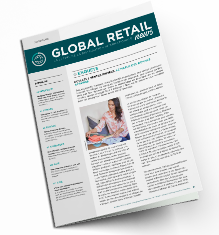The world’s retailers rethink post-Covid-19 store portfolios
The Covid-19 crisis accelerated the migration of consumer goods sales to digital platforms. Retailers around the world are responding by closing stores that are no longer profitable amidst falling customer traffic, writes Pattern Global Head of Marketing Joanna Perry.

The company closes stores in Asia and Germany
The Covid-19 pandemic had an obvious and immediate effect on the retail industry. Stores around the world closed during lockdown. However, the longer-term impact is just as interesting, causing an acceleration in the migration of retail sales to digital online channels. Even highly successful retailers are questioning how many physical stores they need now, and in the future.
In the West, this trend was already clear. Famous retail names in Europe and the U.S.A. faced bankruptcy as their business models, incorporating high cost for property and staff, no longer returned a profit in whilst losing customers to online sales platforms.
Disruptive macroeconomic forces have been kinder to retailers in Asia. There is less overdevelopment of retail space. Growing middle class spending is protecting store revenue. However, even in Asia the growth of e-commerce is having an impact and causing retailers to question how many stores they need in markets such as Hong Kong, South Korea or Japan.
Change in cost structure for retailers
No market is immune from this post-Covid-19 trend. The cost structure of stores will need to fundamentally change if retailers are to continue operating both brick and digital operations.
Changing demand exacerbated by Covid-19 hit North American retailers hard and will lead to a large number of store closures. One sector badly affected is retailers selling formal work clothing. Tailored Brands, which owns two men’s tailored clothing chains plans to close up to 500 stores after filing for Chapter 11 bankruptcy. North American department store chains Neiman Marcus and Taylor & Lord are in a similar predicament.
Even retail chains with relatively small numbers of stores are asking difficult questions about their property portfolios. One is U.K. department store retailer John Lewis. The outcome of a strategic review came in late July, with Chairwoman Dame Sharon White announcing that 8 of 50 stores would close. She estimates that 60% of sales will be online in 2020 and 2021, a rise from 40% before the pandemic struck.
The U.K.-based global e-commerce consultants Pattern (member of Ebeltoft) conducted research among Australian consumers in early August to determine the impact of Covid-19 on shopping behaviour. 52% of the 1,000 Australians said they reduced physical store visits. 53% said they have bought more products online as a result of Covid-19. 45% expected to continue to decrease store visits for the rest of the year.





